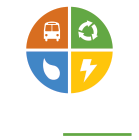
This summer, the Museum of Science, city planners, educational and community organizations are working with dozens of volunteers to capture the temperature around the Boston area and turn it into a map. Join this event to learn how you can become a volunteer.
More details:
The City of Cambridge, City of Boston, and Town of Brookline are partnering with the Museum of Science to map urban heat this summer. If you are interested to help collect data on temperature and humidity in Boston, Brookline, or Cambridge and learn more about the urban heat island effect and the challenges posed by climate change, please attend this event.
There are two ways to participate. This summer, we are recruiting citizen scientists to collect data through a platform called ISeeChange, which investigates how weather and climate are changing over time. After signing up, you can participate from anywhere using just a smart phone or computer. Through the app, you can post observations about how the heat is affecting you and the areas around you. These observations help the museum and our science partners understand the hottest points in the greater Boston area in order to build better resiliency plans. To get started on this fun citizen science opportunity, head to www.scistarter.org/noaa.
Additionally, we will be collecting temperature and humidity data in a process called urban heat island mapping throughout Cambridge, Boston, and Brookline. We are looking for volunteers to meet us and ride or drive along a pre-set route collecting heat data with a unique sensor. The heat mapping will take place during the hottest times of the year, and anywhere from July 15-August 15.
This citizens science project will collect data on the ground that is more dense and over the course of 3 times during a day, including the evening. Currently, the three cities do not have good evening temperature and humidity data. We also hope to collect data on more than one day. This data can be used to help better understand the public health implications of extreme heat and heat waves and can be used to plan projects to reduce the urban heat island effect.


Recent Comments